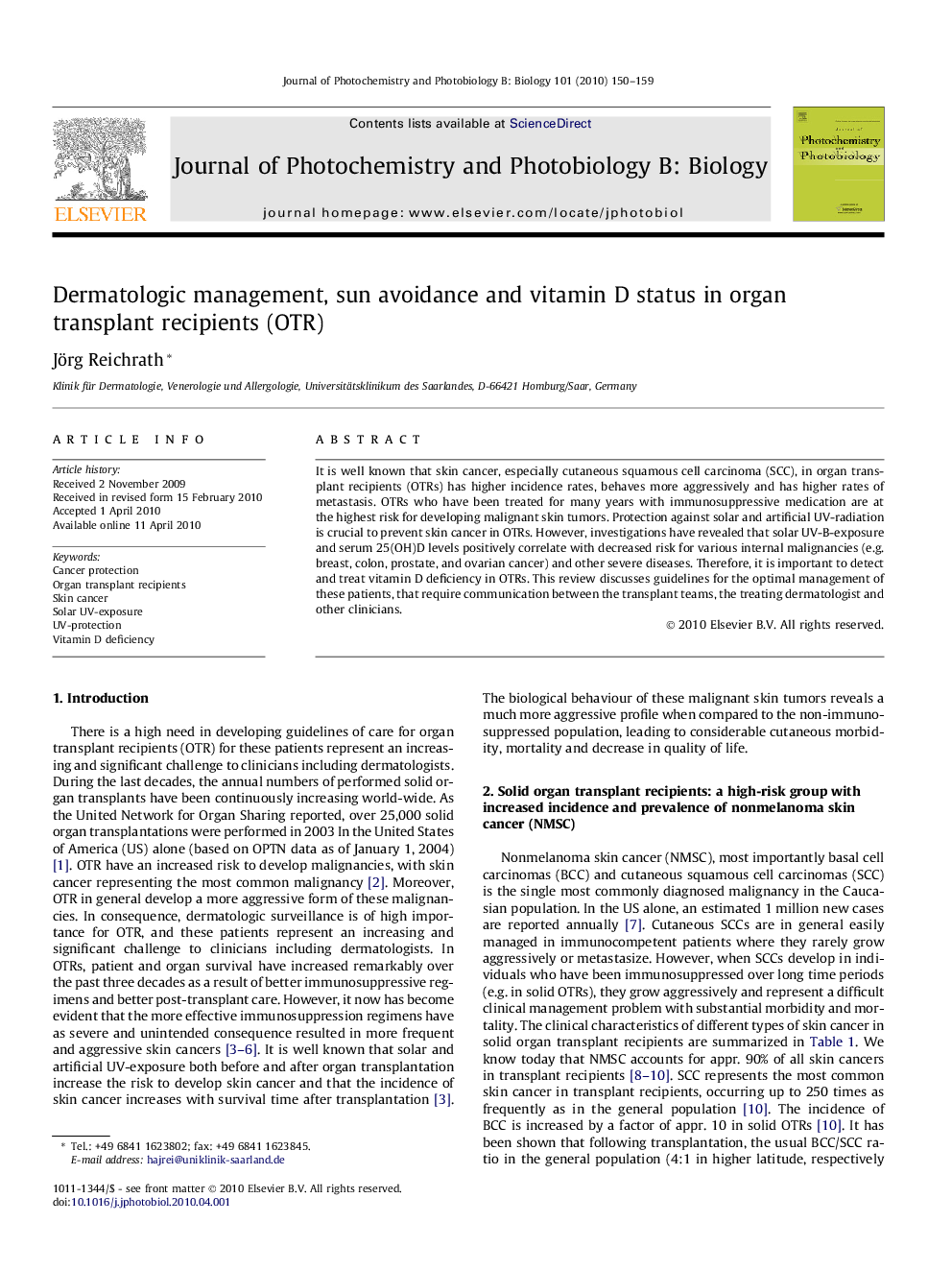| Article ID | Journal | Published Year | Pages | File Type |
|---|---|---|---|---|
| 30865 | Journal of Photochemistry and Photobiology B: Biology | 2010 | 10 Pages |
It is well known that skin cancer, especially cutaneous squamous cell carcinoma (SCC), in organ transplant recipients (OTRs) has higher incidence rates, behaves more aggressively and has higher rates of metastasis. OTRs who have been treated for many years with immunosuppressive medication are at the highest risk for developing malignant skin tumors. Protection against solar and artificial UV-radiation is crucial to prevent skin cancer in OTRs. However, investigations have revealed that solar UV-B-exposure and serum 25(OH)D levels positively correlate with decreased risk for various internal malignancies (e.g. breast, colon, prostate, and ovarian cancer) and other severe diseases. Therefore, it is important to detect and treat vitamin D deficiency in OTRs. This review discusses guidelines for the optimal management of these patients, that require communication between the transplant teams, the treating dermatologist and other clinicians.
